Our guest blogger this month is stewardship intern Sam Chapman; photos by fellow intern Jason Spear.
My top five North Coast Land Conservancy properties are easy to list. Necanicum Forest, for being relatively pristine, wet, and shady. Bradley Bog on Sand Lake, for hiding so many treasures in the midst of impenetrable brush. Circle Creek, an obvious choice, for hosting me and a herd of thirteen elk side by side, and for the way afternoon sunlight angles through the spruce. Clear Lake, for the way the mist rises off the water at night.
Reed Ranch is last: part of the Clatsop Plains series of properties, grasslands succeeded from dune habitats, all featuring oceans of swaying sedge. The real reason for its inclusion, however, is a conversation from June, early in my tenure as stewardship intern.
While eating lunch at a fine shady spot by the river, I asked Eric, our supervisor, what would happen to the sloping bank after we cleared the Scotch broom.
He said, “The blackberry will move in.”
Which led me to wrestle with a question all summer: why work so hard treating one noxious weed simply to make way for another? Why beat back policeman’s helmet or purple loosestrife when they run free right beside our properties, spilling millions of seeds over the boundary? Why dig yellow flag iris when bits of its rhizome hide in the soil, biding their time until next year? What, in short, are Ari and Jason and Eric and I accomplishing?
There are many answers. For me, the truth lies in the core ideal of a land trust: what we conserve, we conserve forever.
What does forever mean in this context? It’s a fraught term in a world where laws change, where wind and water alter the borders of our eternal protectorates.
Forever does not mean we defend these plots of land from invasives and aliens and zombies until the end of time—although we will if we can.
Nor does it mean that before the sun engulfs the Earth, we will obtain a grant to strap rocket engines onto Surf Pines Prairie and launch it to the nearest safe solar system to preserve what used to be our environment before we evolved into six-dimensional beings of pure energy—although that would be cool.
Forever is a decision. We’re not literally planning to be stewards forever. We’re electing to behave like we are.
Environment is experience. It is that with which we can interact. This experience is polluted constantly with ideas as prolific as the Scotch broom at Reed Ranch: we have moved beyond the need for open spaces, which are nothing more than museum pieces in a world of modern convenience. Why cut, when the blackberry will move in? What’s Reed Ranch done for us lately?
When our crew ventures onto the land, we rebel against this worship of the present. To clear weeds from Reed Ranch, and to clear noxious ideas from our understanding of what Reed Ranch means, are identical actions. The blackberry will encroach, but that has no meaning against forever. The land is ours. So we work it.
North Coast Land Conservancy is dedicated to a timeless premise: that each time one of these places disappears, we lose a part of our collective selves. The chorus frogs of Clear Lake, the hawks of Circle Creek, sing to our consciousness. When one of us fights for the land, expecting the battle to recur unto oblivion, he or she fights beside us all.
This is what animates me when I put on my hat every day. Each stump, each naked root is a victory. Reed Ranch joins the top five as a fine place to begin anchoring oneself to eternity.
Sam Chapman, 21, grew up in Austin, Texas. He is a 2015 graduate of Whitman College, where he majored in environmental humanities. Seaside native Jason Spear, 23, graduated in 2014 from the University of Oregon, where he majored in environmental science and minored in biology.

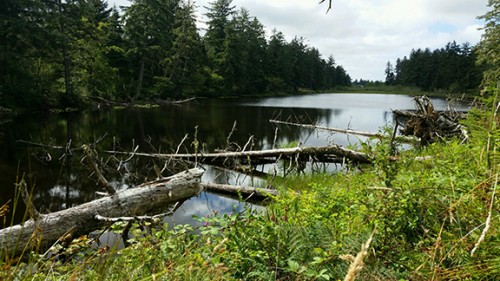
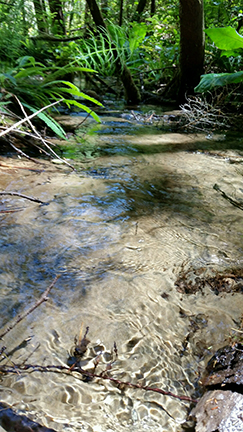
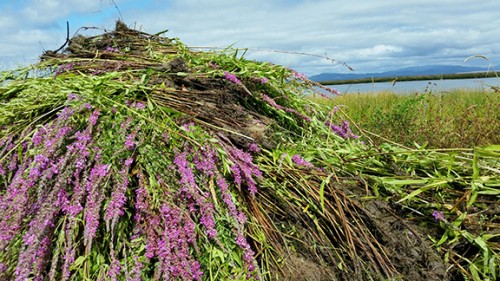
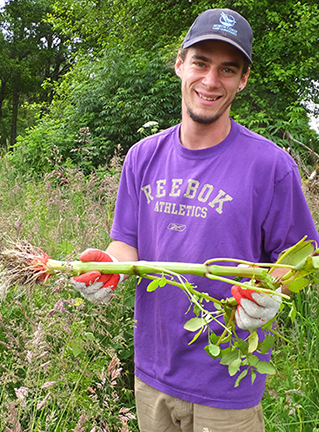
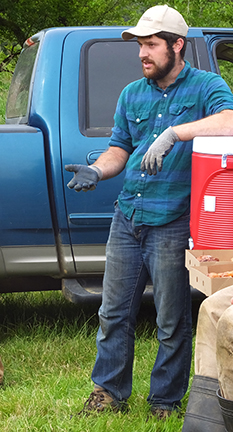
Comments